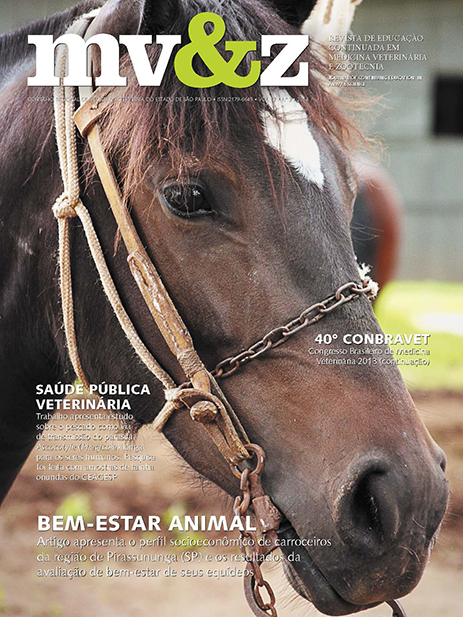Renata Simões
Universidade Federal do ABC, Centro de Ciências Naturais e Humanas, Santo André, SP
Adriano Felipe Perez Siqueira
Universidade de São Paulo, Faculdade de Medicina Veterinária e Zootecnia, Departamento de Reprodução Animal, são Paulo, SP
Marcilio Nichi
Universidade de São Paulo, Faculdade de Medicina Veterinária e Zootecnia, Departamento de Reprodução Animal, são Paulo, SP
José Antonio Visintin
Universidade de São Paulo, Faculdade de Medicina Veterinária e Zootecnia, Departamento de Reprodução Animal, são Paulo, SP
Mayra Elena Ortiz D'Ávila Assumpção
Universidade de São Paulo, Faculdade de Medicina Veterinária e Zootecnia, Departamento de Reprodução Animal, são Paulo, SP
Resumo
Nas últimas décadas, a avaliação de rotina do sêmen bovino vem sendo estudada exaustivamente e inclui: volume seminal, padrão de motilidade retilínea, concentração e morfologia espermáticas. Tais análises têm sido utilizadas para a seleção de reprodutores e cálculo do rendimento de ejaculados de modo a melhorar a eficiência de biotécnicas como inseminação artificial e produção in vitro de embriões. No entanto, estes testes não apresentam resultados consistentes, principalmente para os casos de infertilidade idiopática. Assim, mesmo que a fertilidade de um indivíduo seja dependente de diversos fatores e que dificilmente um teste ou um conjunto de testes possa predizer esta característica, a utilização de técnicas funcionais mais avançadas poderia, em última análise, tornar esta avaliação mais completa e consistente. A integridade da cromatina espermática é fundamental para a transmissão das informações genéticas paternas, e as alterações de DNA podem levar a falhas no processo reprodutivo. Danos na cromatina espermática podem ocorrer por diversos motivos e os mais importantes são: processos semelhantes a apoptose, deficiência de protamina e danos causados pelas espécies reativas de oxigênio (EROs). Na espécie bovina, as informações sobre a influência da integridade do DNA espermático no processo de fecundação e no desenvolvimento embrionário ainda são mais escassas. O presente trabalho tem como objetivo revisar as principais causas de dano de cromatina espermática que influenciam o desenvolvimento embrionário inicial.
